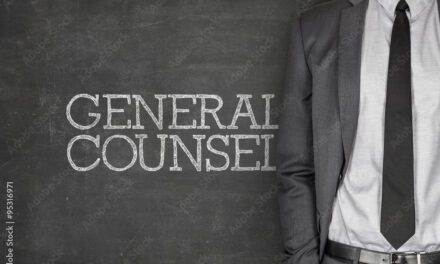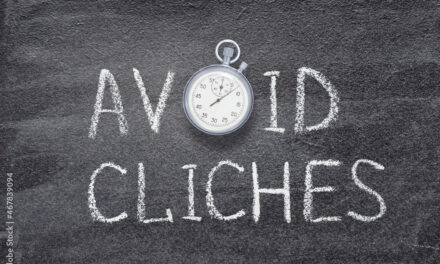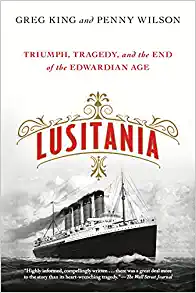Commandment Seven’s First Blog Publication: January 19, 2015
This Preface is attached to each of the parts, oppressive though that may appear.This blog is part (1/11th) of a collection called the ELEVEN COMMANDMENTS OF LEGAL ETHICS. There are 11 separate mini-blogs; they need not be read in any particular order. I have tried to keep them “together,” but cyber-success is not an inevitability when I am around. An early version of it was published a decade or so ago. Before that very short speech versions were used as part of a day long CLE course ordered by the Supreme Court of Texas for new lawyers. Later for several years it was used in other CE or CLE contexts. All of this can be found on my Resume which is linked to (attached to) my website. www.michaelseanquinn.com. There are video versions somewhere in the cyber-sphere, and if not there in the cyber-world or in c-space and/or in the so-called “real world,” for sale. As old as it is, the collection–whether in print, in the “blogus-sphere,” on a something like a motion picture made a few years ago–is not really out of date, except there are not explicit references it to legal ethics and the cyber world. At the same the obligations of the lawyers have not changed much, except now there is a new dimension to our confidentiality obligations and and out obligations to keep up to date. The “code numbers” are sometimes to the ABA Model Rules and sometimes to the Texas Rules of Professional Conduct. (*The term “version” means what it says: wordings change and ideas shift, tough the latter very little. Earlier version can be found entered on July 2, 2012 and on March 12, 2014.) The drafts of this manuscript, and others in this series were prepared somewhere between several and a lot of time. Consequently, the outline form is substantially than perfect down the left hand ledge.
These disquisitions are revisions something I wrote at least several years ago. First editions of these essays were begun some time ago. Somehow their print got locked in, to some degree, so some parts of the essays were thrown out of kilter and can’t be made right today. This is particularly true along the left margins of some of the essays.
Some of the Blogs will contain supplementary additions. Those added after January 1, 2015 will probably be dated, barring oversight. Readers may note that many of the cites are Texas cases. This resulted from the history of the contents.
This blog, like some of the others, will contain supplementary additions. Like the others, it will also use some abbreviations from time to time: L for lawyer, LF for law firm, C for client, J for judge, etc.
Given the purposes and context in which the early versions of the essays were written, many of the legal rules explicitly numbered are from The Texas Rules that were built upon the ABA Model Rules.
COMMANDMENT EIGHT: KEEP A CIVIL TONGUE IN YOUR HEAD.
adjudicatory proceedings:
questions of witnesses.
Lawyers shall not engage in conduct
intended to disrupt adjudicatory proceedings.
shall not argue unreasonably irrelevant matters in adjudicatory proceedings or
matters not supported by admissible evidence.
(This rule precludes some forms of abusive argumentation.)
discharge to harass them, embarrass them or influence their actions as future
jurors.
press, either directly or indirectly, that a reasonable lawyer would know that
the statement will have “a substantial likelihood of materially prejudicing an
adjudicatory proceeding.”
reason.
threaten criminal prosecution or disciplinary charges just to obtain an
advantage in a civil matter.
action.
by the Supreme Court of Texas requires that counsel be civil to judges,
witnesses, litigants, and each other.
issued an order stating that it has the inherent authority to enforce the
creed. The court imposed sanctions.
it is not to be used as an instrument of lawyer discipline.65
shall not be addressed in an uncivil manner or with inappropriate
language. This rule even comes up in
appellate courts. See Kahn v.
EFG Associates, Inc., 97-0955 (Tex. 1998).
The Supreme Court dismissed the position for review in that case with
the following notation: “The redrawn
petition for review, filed December 29, 1997, is struck due to
inappropriate language and the case is dismissed.” Id.66
concerned for the last decade, at least, about declining civility in
lawyers. In the federal system, there is
Rule 11, and in the Texas state system, there is Rule 13. See Interim Report of the Committee on
Civility of the Seventh Judicial Circuit, 143 F.R.D. 371 (1991). Federal courts may enforce Rule 13 for
objectionable conduct in state court that occurred prior to removal. Tompkins v. Cyr, 995 F. Supp. 689
(N.D. Tex. 1998) (finding that the federal court can apply state sanctions were
denied in this case). Is the following a paradigmatic case? In 2011 a prominent NY divorce L with a celebrity client said in a Connecticut court house that its state’s lawyers were “sleazy” and that an associate in a relevant law firm was a “little piece of shit.” [Or was it “short stack of shit.”] A local judge imposed a sanction of $35,000, including $7500 in legal fees, though she did not revoke NYC’s L’s pro hac vice admission to her court.
lawyers of ethical misconduct without evidence.
United States v. Stafford, 136 F.3d 1109 (7th Cir. 1998) citing Galle
v. Orleans Parish School Board, 623 So.2d 692 (La. App. 1993). Even worse is when one lawyer accuses another
of unlawful conduct and scandal without evidence and in a way which brings
incivility into the courtroom. United
States v. Kouri-Perez, 8 F. Supp.2d 133 (D.P.R. 1998). (“Along with unnecessarily delving into [the
prosecutor’s] alleged ancestry, defense counsel misrepresented [the
prosecutor’s] to the court and strongly implied that she was hiding her true
identity by using an assumed name. This
behavior is unacceptable. Aside from the
fact that defense counsel’s statement was simply untrue, the nature of the misstatement
is particularly offensive. . . . Defense counsel’s behavior is
also worthy of sanction because it unnecessarily intruded into the private life
of a colleague and an officer of the court.
Both the Puerto Rico and the United States Constitutions protect rights
of privacy.” Id. at 138-139.
appellate panel of gross judicial misconduct and various torts. The lawyer’s motion did not right any
evidence for these assertions. The
lawyer’s motion to disqualify the panel, and to transfer the case was
denied. In addition, the court forwarded
all the various material to General Counsel for the State Bar of Texas. Sears v. Olivarez, 28 S.W.3d 611 (Tex.
App.–Corpus Christi 2000, no writ).
with the courts, individual judges, his former law firms, and attorneys who
were his ex-employees.’” This attorney
“established himself as ‘the benchmark by which all vexatious litigants in the
state of California will be judged.” In
re Shieh, 738 A.2d 814 (D.C. App. 1999) (reciprocal disbarment). Other courts had levied $500,000.00 in
sanctions against this lawyer, and he fled to Taiwan once to escape court
action against him. Here is what one
court said of one of his briefs, “‘No attorney of reasonable competence could
have thought this massive mountain of paper had any arguable merit
whatsoever.’” Id. at 816 citing Say
& Sawy v. Castellano, 22 Cal. App.4th 88 (Cal. App. 2d Dist. 1994).
may lead to sanctions. Griffith v.
Hess Oil Virgin Islands Corp., 5 F. Supp.2d 336, 341 (D. St. Croix,
1998). Keep nothing but civil ink
in your pen. Your tongue should be at
least as civil as your pen! For
a stunning and gastly display of incivility, see the facts
detailed in Revron v. Cinque & Cinque, P.C., 70 F. Supp.2d 415
(S.D.N.Y. 1999) vacated 221 F.3d 71 (2d Cir. N.Y. 2000) (reversing
sanctions because some of plaintiff attorney’s client’s claims of fraud were
colorable, and plaintiff attorney apologized repeatedly for inappropriate
language). In this case, lawyer A threatened
to tarnish reputation of defendant lawyer B in suit over legal fees,
stating that he would subject B to “legal equivalent of a proctology
exam.” Lawyer A additionally made
numerous unfounded accusations and engaged in a continuous course of vitriolic
behavior directed against B.
Lawyer A’s behavior was so beyond the pale and ill-advised that
it is hard to think of a commandment that he didn’t violate somewhere in the
process.
insulting letter to the jurors. The
State Bar believed he ran afoul of Rule 3.06(d), which prohibits such
communications. The lawyer admitted that
he had violated the rule, but challenged the rule on constitutional
grounds. The supreme court found that
the rule did not run afoul of the First Amendment, was not overbroad, and did
not violate the Equal Protection Clause.
On the other hand, the court found that the rule was unconstitutionally
vague in certain respects. The rule
prohibits harassment. The court found
that the attorney had not harassed anyone, since he had not directed the letter
at any individual but merely sent a single letter to each discharged
juror. The court found that the rule’s
use of the term “embarrass” was fatally vague.
As the result of its findings, the court sent the case back to the trial
court for a new hearing on punishment.
Chief Justice Phillips wrote the plurality opinion. There was a complex web of concurring and
dissenting opinions. Justice Gonzales,
for example, would have held that the Rule conflicts with the First
Amendment. Three Justices, including
Justice Gonzales, would have held that the entire rule was void for
vagueness. Commission for Lawyer Discipline
v. Benton, 980 S.W.2d 425 (Tex. 1998).
Stability. Isn’t the civility
required of lawyers really designed to set a good example for the rest of the
population. Does not democracy depend
upon civility and trust?
A. Cook, Fred Hagens, James H. Holmes, III, A Guide to the Texas Lawyer’s
Creed: A Mandate for Professionalism, 10
Review of Litigation 673
(1991). (At the time this essay was
published, Cook was a justice on the Supreme Court of Texas and was the
Chairman on the Supreme Court Committee on professionalism; Fred Hagins and
James H. Holmes, III, were the two co-chair of the Supreme Court Advisory
Committee at the time. For The Creed and its background see Craig Enoch, Incivility
In the Legal System? Maybe It’s the
Rules, 47 SMU L. Rev. 199
(1994). (Justice Enoch sat on the
supreme court of Texas when he wrote this article, and sits there
currently. This essay, which explored
whether civility rules might not increase in civility, or at least litigation
over ethical problems, was his LLM Thesis at the University of Virginia Law
School.)
topic of civility has been extensively discussed in Stephen Carter, Civility (1998). This is a general treatise on the importance
of civility in a democratic society.
Carter is a professor at the Yale Law School. Professor Carter argues that civility
essentially involves sacrifice. How can
a lawyer zealously represent his client and at the same time be civil in the
sacrificial sense conceived by Professor Carter? For an account of the causes and cures of
incivility, see Kara Ann Nagorney, A Noble Profession? A Discussion of Civility Among Lawyers,
12 Geo. J. Legal Ethics 815
(Summer 1999). (Listing some causes of
decline; including: lost idea of the
lawyer-statesman; change from profession to business; diversification of legal
professionals (for example, with respect to race, gender, and class); misuse of
legal procedure; judicial talents and misconduct; immediate distortion. Possible cures: mentoring programs; judicial intolerance;
meaningful civility codes; really teaching professional responsibility in law
schools.)






Recent Comments